



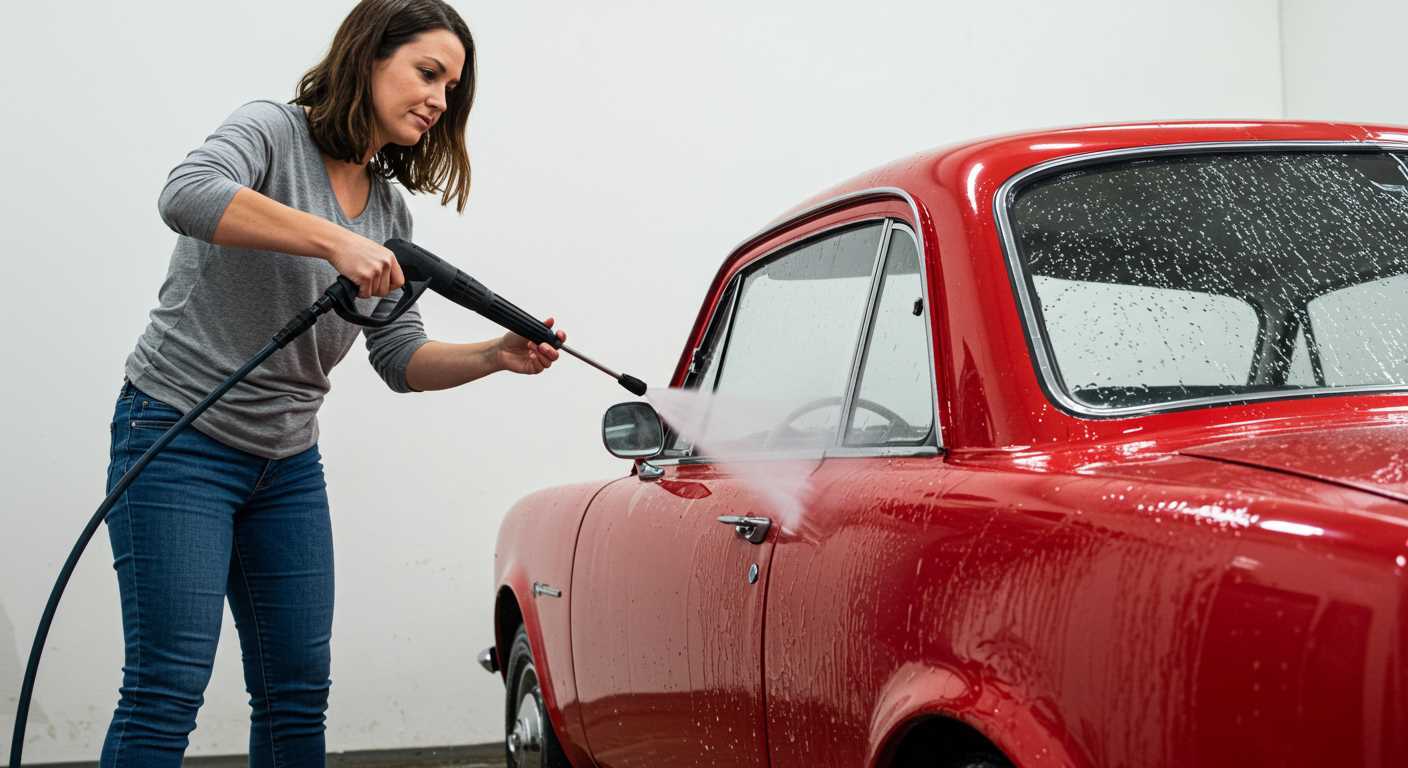
Absolutely, tackling outdoor tasks with a high-pressure device during colder months is possible, but it requires a few precautions. My years of experience with various models have taught me that while cleaning surfaces like patios and driveways can be effective even in low temperatures, there are specific strategies to ensure safety and maintain equipment functionality.
Firstly, maintaining a suitable temperature for the water is critical. Warm water not only enhances cleaning efficiency but also helps prevent freezing in the nozzle and hoses. I often recommend using hot water models, as they can significantly reduce the risk of ice formation, allowing for uninterrupted work.
Another key aspect involves protecting the equipment from harsh conditions. Whenever I operated machines in cold weather, I made it a habit to store them in a sheltered area when not in use. This simple practice not only extends the lifespan of the device but also ensures it’s ready for action without the hassle of thawing out frozen components.
Lastly, always be cautious of slippery surfaces, as ice can accumulate quickly. I advise wearing appropriate footwear and keeping an eye on the surface conditions to prevent accidents. With the right approach, winter cleaning can be just as effective as in warmer months, and it certainly keeps your outdoor spaces looking their best.
Using a High-Pressure Cleaning Device in Cold Months
It’s possible to operate a high-pressure cleaning device during colder months, but caution is necessary. I’ve tackled numerous outdoor tasks during chilly days, and here are some insights from my experiences.
First, ensure that the equipment is winter-ready. Many models can handle lower temperatures, but it’s crucial to check the manufacturer’s guidelines. If the temperature drops below freezing, water left in the system can cause serious damage. Always drain the machine after each session. I learned this lesson the hard way when a colleague forgot to do so, resulting in a costly repair.
Using warm water can be a game changer. I often filled the tank with water heated to a comfortable temperature, which not only improved cleaning efficiency but also minimised the risk of freezing. Just make sure the components are rated for hot water use; not all devices are designed for that.
Timing matters. I found that working during the warmest part of the day helped. The sun can make a significant difference, even in cold weather. Starting in the afternoon often meant less hassle with ice forming on surfaces.
Investing in antifreeze specifically designed for these machines can be worthwhile. This solution prevents water from freezing in the lines, allowing for a seamless cleaning experience. I remember a particularly frosty morning when my antifreeze solution saved the day, allowing me to complete a job without delay.
Lastly, be cautious of slippery surfaces. Ice can form unexpectedly, creating hazards during operation. I always keep a pair of non-slip boots handy and recommend others do the same. Safety should never be overlooked, no matter how urgent the task.
Understanding Cold Weather Limitations
Operating cleaning equipment during colder months demands awareness of specific challenges. Frost can lead to equipment damage, and icy surfaces pose safety hazards. It’s crucial to consider your tools and environment before proceeding.
- Temperature Thresholds: Many machines struggle to function effectively below 0°C. The water can freeze in hoses and pumps, causing blockages and potential damage.
- Water Source: Ensure that the water supply remains unfrozen. Using a garden hose for karcher pressure washer specifically designed for low temperatures can help prevent ice formation.
- Surface Safety: Be mindful of slip hazards on wet surfaces. Ice accumulation can create dangerous conditions while cleaning.
- Storage Precautions: After use, make sure to drain all components to prevent freezing. Leaving water in the system can lead to cracks and costly repairs.
From my experience, maintaining a consistent temperature for both water and equipment is key. If conditions are too harsh, it may be wise to postpone tasks until the weather improves. Preventive measures ensure longevity and optimal performance of your cleaning tools.
Preparing Your Pressure Washer for Winter Use
Before venturing into cold conditions, ensure all components are ready for low temperatures. Begin by removing any detergent or soap from the tank; residue can freeze and damage internal parts. Flush the system with clean water to eliminate any remaining cleaning agents.
Next, consider using a winter-grade antifreeze solution. This helps protect the pump and hoses from freezing. Pour the antifreeze into the tank and run the unit briefly to ensure the mixture circulates through the system.
Examine hoses and fittings for cracks or wear. Cold weather can exacerbate existing weaknesses, leading to leaks. Replace any damaged parts before the cold sets in. Storing the equipment in a heated space when not in use can prevent freezing issues.
Check the oil levels in the engine. Cold temperatures can thicken oil, affecting performance. If necessary, switch to a winter-grade oil to maintain optimal operation. Regular maintenance ensures longevity, especially in challenging conditions.
Finally, always have a plan for working in freezing temperatures. Keep a close eye on conditions and limit usage during extreme cold to prevent any mishaps. If temperatures drop significantly, it may be wiser to postpone tasks until the weather improves.
Choosing the Right Detergents for Cold Conditions
For cold-weather cleaning tasks, selecting appropriate detergents is critical. Opt for products specifically designed for low temperatures. These formulations often remain fluid at lower temperatures, ensuring they mix well with water and do not freeze in the tank.
Key Features of Effective Cold-Weather Detergents
Look for biodegradable options that effectively cut through grease and grime while being safe for the environment. Additionally, consider detergents with anti-freeze properties that help prevent freezing in hoses and nozzles. This ensures smooth operation without interruptions, allowing for a more efficient cleaning session.
Recommendations for Specific Applications
For vehicles, I recommend a pH-balanced cleaner that won’t strip wax or harm the paint. Many brands offer winter formulations that are safe for automotive surfaces. If tackling heavy-duty tasks, such as cleaning driveways or patios, a degreaser designed for cold conditions will help break down stubborn stains effectively.
| Application | Recommended Detergent Type |
|---|---|
| Vehicles | pH-balanced cleaner |
| Driveways | Cold-formulated degreaser |
| Patios | Biodegradable cleaner with anti-freeze |
Always check product labels for temperature ratings and mixing instructions. If in doubt, consult with manufacturers or retailers for guidance. For drying vehicles after washing, consider investing in the best air compressor for drying car, which can significantly speed up the drying process, especially in cold conditions.
Techniques for Preventing Freezing During Use
To avoid freezing issues while operating in cold conditions, maintain a steady flow of warm water. Keeping your water temperature above freezing can significantly reduce the risk of ice forming within hoses and fittings.
Insulating Hoses and Connections
Wrap hoses and connections with insulation tape or foam pipe insulation. This simple yet effective method retains warmth and prevents ice build-up. I recall a particularly frosty day when I insulated my equipment and noticed a remarkable difference in performance.
Using Heated Water Sources
Connect to a heated water supply if possible. This can be a garden hose equipped with a heater or a water tank warmed beforehand. During one winter project, I utilised a heated tank, which not only kept the water flowing but also improved cleaning efficiency on stubborn grime.
After each session, drain all water from hoses, nozzles, and the tank to eliminate any remaining liquid that could freeze. I’ve seen too many units damaged by neglecting this step. Always ensure that every component is thoroughly emptied to prevent ice formation overnight.
Lastly, consider working during the day when temperatures are slightly higher. I’ve found that even a few degrees can make a noticeable difference in maintaining functionality. Choosing the right time can be just as critical as using the right tools.
Post-Cleaning Care for Your Equipment
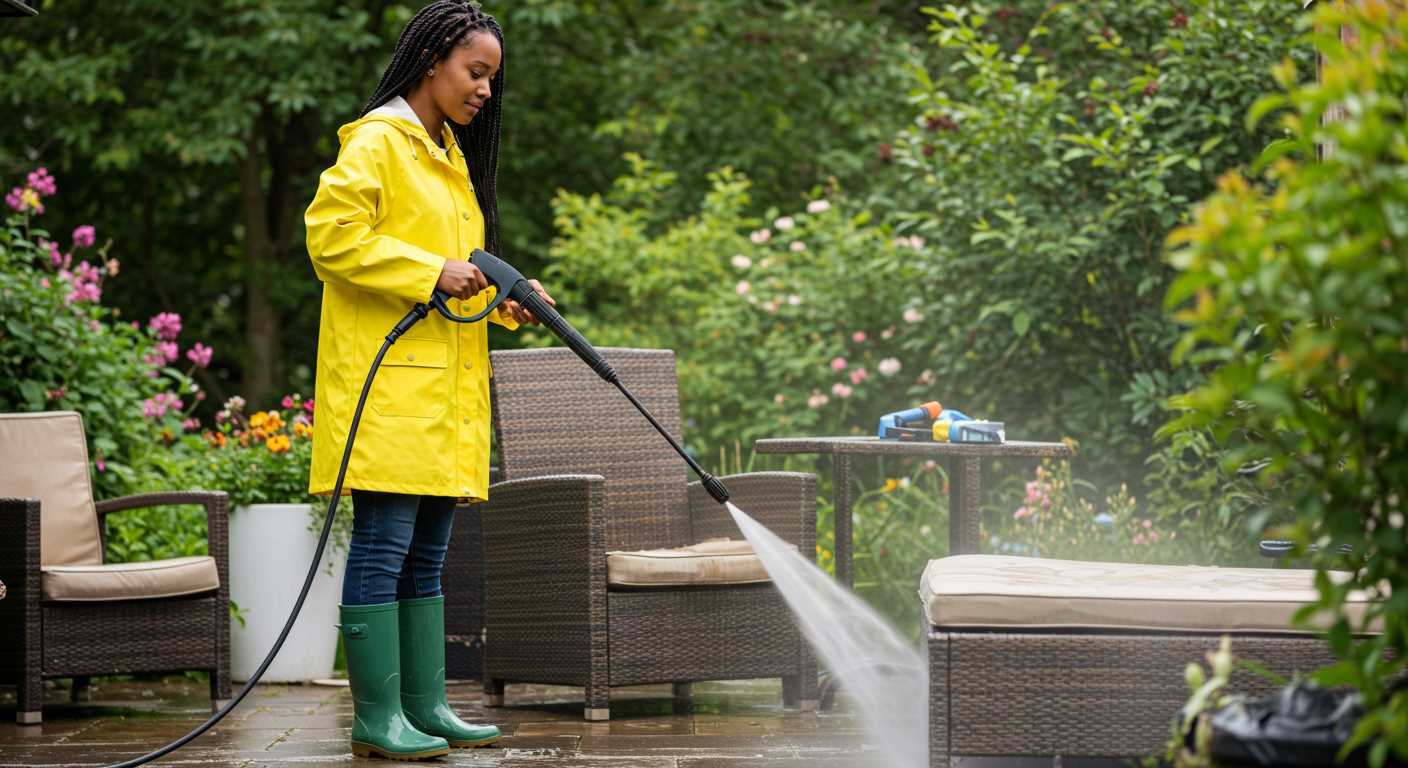
After a thorough clean, immediate attention to your equipment is crucial. First, ensure that all water is drained from the hoses and nozzles to avoid any risk of freezing. I remember one winter when I overlooked this step; the consequences were costly, with frozen components leading to repairs that could have been easily avoided.
Next, inspect the machine for any signs of wear or damage. Cold temperatures can exacerbate existing issues, so it’s wise to conduct a detailed check. Look for cracks in hoses or fittings, as these can worsen in frigid conditions. If you spot any problems, address them promptly to maintain performance.
Cleaning the filters and screens is also a necessary step. Cold weather can lead to debris accumulation, which affects water flow and efficiency. A little maintenance goes a long way, and I often found that a quick clean of these parts improved performance significantly.
Storing equipment properly is equally important. Keep it in a climate-controlled environment to prevent any freezing. I had a colleague who stored their gear in an unheated shed; they faced a nightmare when spring arrived, as everything needed extensive repairs. A warm garage or storage area is ideal for prolonging the life of your tools.
Finally, consider adding a protective cover. This simple act can shield against dust and grime, ensuring everything is ready for the next use. I’ve seen how a good cover can protect against accidental bumps and scratches. Investing in a quality cover pays off in the long run.
Safety Precautions When Using a Pressure Washer in Winter
Before tackling outdoor cleaning tasks when temperatures drop, ensure proper gear is worn. Insulated gloves and waterproof boots keep extremities warm and dry. A sturdy coat with a hood protects against splashes and biting winds. Safety goggles are non-negotiable; they shield eyes from debris propelled by high-velocity water.
Inspect equipment thoroughly. Check hoses for cracks, as cold can make materials brittle. Ensure all fittings are secure to prevent leaks, which can lead to slips on icy surfaces. A well-maintained unit operates more efficiently and safely, reducing the risk of accidents.
Always be aware of surroundings. I recall a day when I lost my footing on a slick driveway while cleaning. One moment of distraction can lead to injury. Keep pets and children indoors or at a safe distance to avoid unexpected encounters.
Before starting any task, evaluate the area for hazards. Snow and ice can hide potential dangers like uneven ground or slippery surfaces. If conditions seem treacherous, postpone the task until it’s safe to proceed.
When dealing with detergents, select those specifically designed for lower temperatures. Some chemicals can become ineffective or even hazardous when frozen. Read labels thoroughly to ensure compatibility with cold conditions.
Lastly, always have a plan for emergencies. Keep a first aid kit nearby, and if working alone, carry a phone for quick access to help if needed. Taking these precautions not only protects oneself but enhances the overall experience during cleaning endeavours in frigid temperatures.

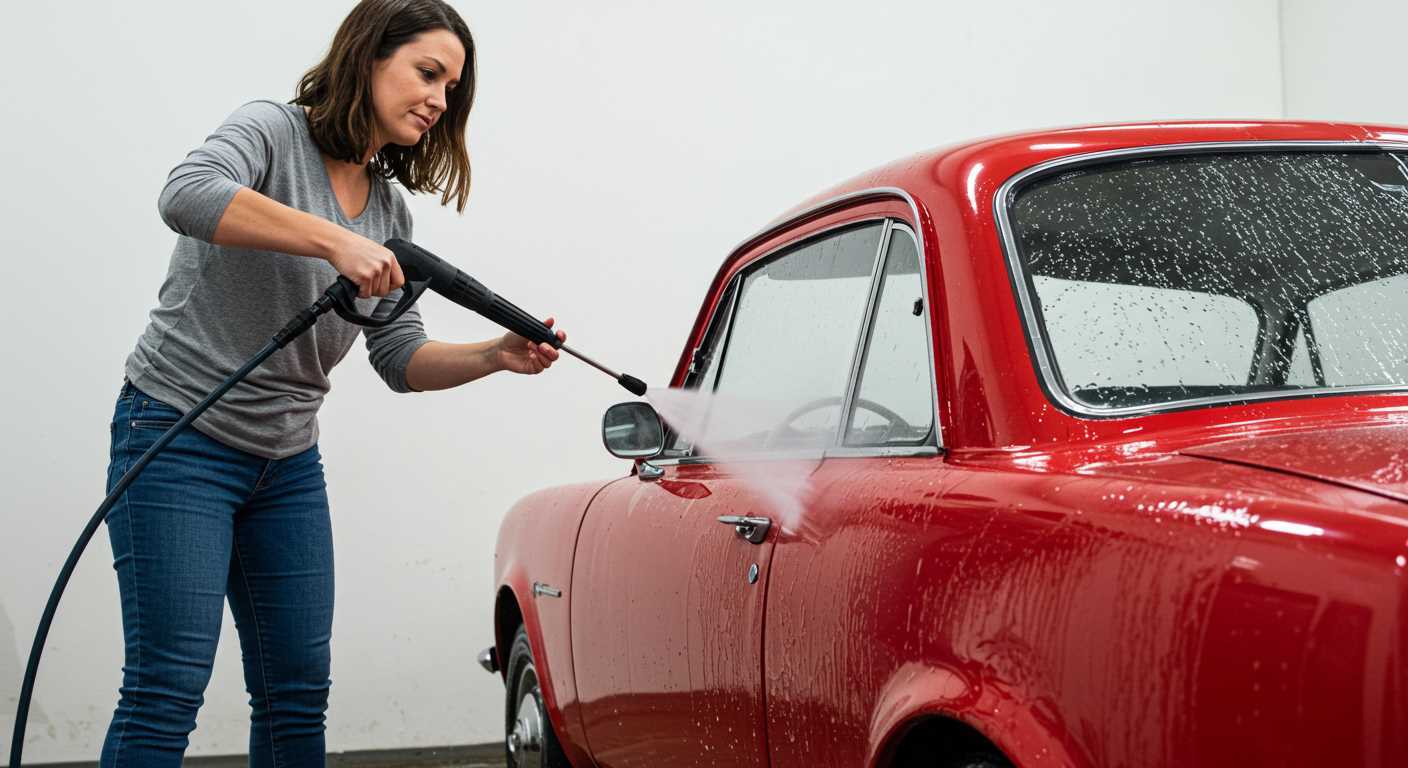



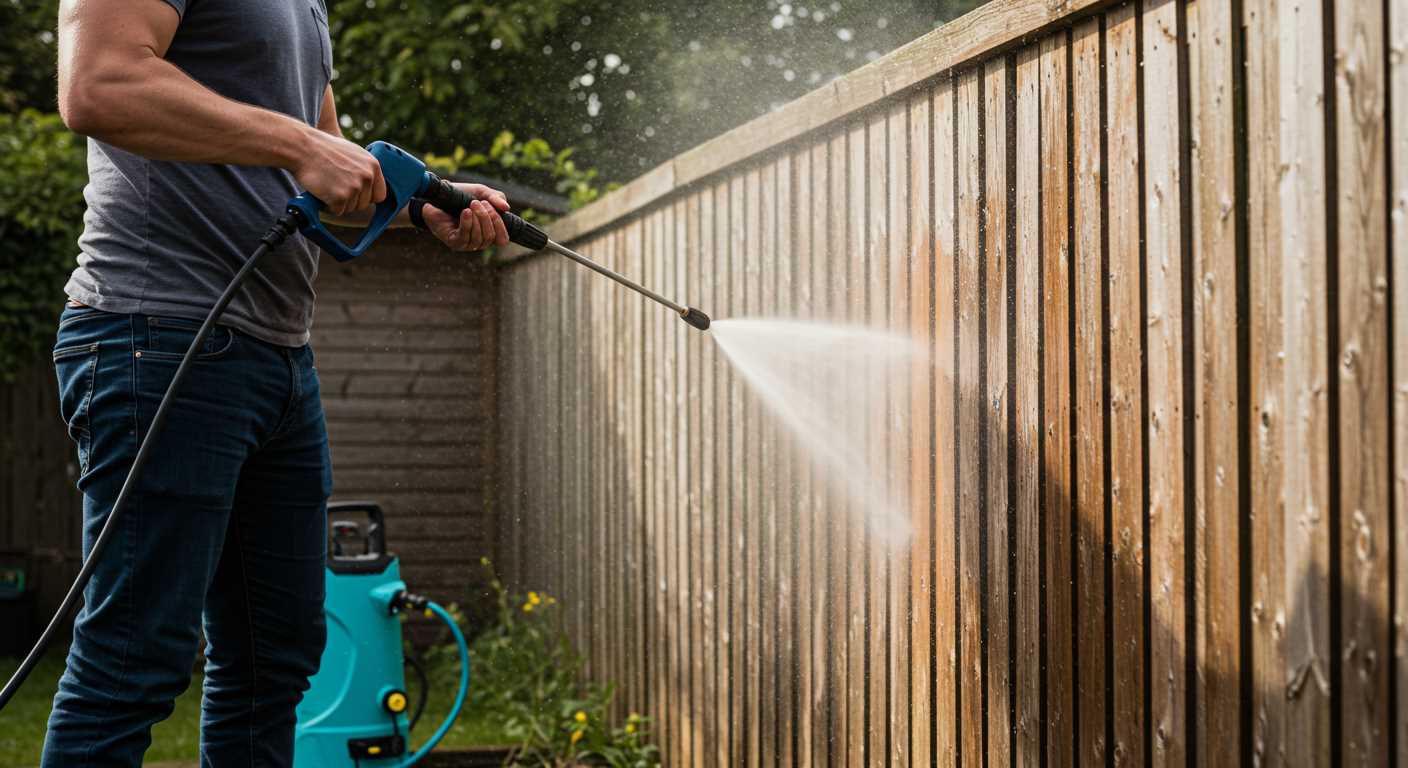
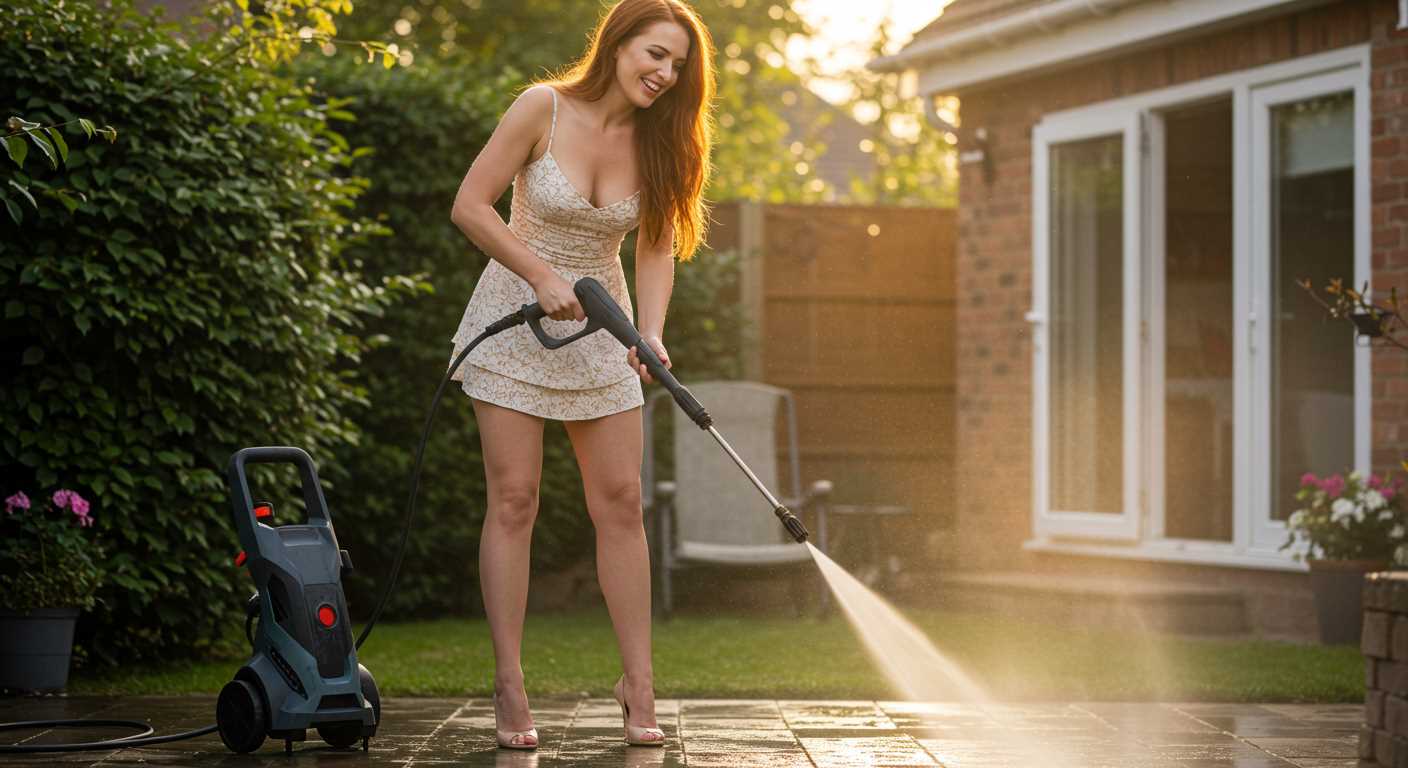
.jpg)


